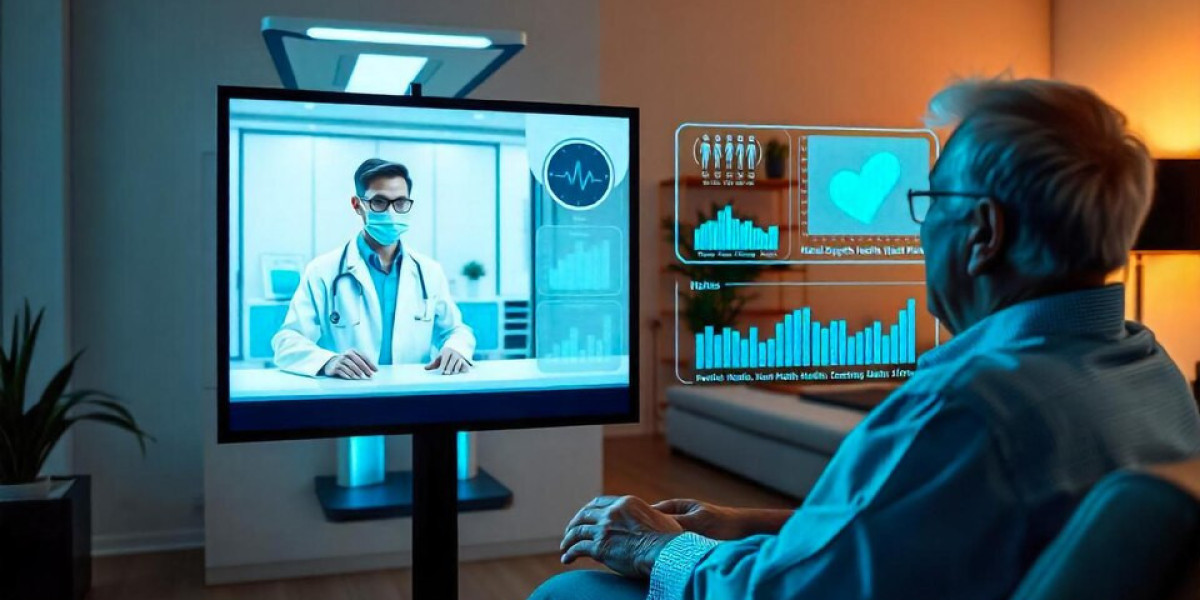The Evolution of Clinical Research Methodology
The landscape of medical research has undergone dramatic changes over the past decade, with virtual clinical trials (VCTs) emerging as a transformative force in pharmaceutical development. These innovative approaches leverage advanced digital platforms to conduct research studies remotely, fundamentally changing how patients interact with clinical trials and how researchers collect and analyze data.
Remote clinical research encompasses a broad spectrum of digital health technologies, including telemedicine platforms, mobile health applications, wearable biosensors, and sophisticated data analytics systems. This comprehensive approach enables researchers to gather more comprehensive and continuous data while reducing the burden on participants and healthcare systems.
Patient-Centric Approach to Medical Research
The shift toward remote clinical research reflects a broader movement toward patient-centricity in healthcare. Traditional clinical trials often required significant time commitments from participants, including frequent site visits, lengthy travel, and disruption to daily routines. Remote methodologies eliminate many of these barriers, enabling patients to participate in groundbreaking research while maintaining their quality of life.
This patient-focused approach has led to improved recruitment rates, higher retention levels, and more diverse participant populations. By removing geographical and logistical constraints, remote clinical research opens opportunities for patients who were previously unable to participate in traditional trials due to distance, mobility limitations, or work commitments.
Market Expansion and Industry Investment
The virtual clinical trials market has experienced remarkable growth, attracting significant investment from pharmaceutical companies, technology firms, and venture capital organizations. This expansion reflects growing recognition of the strategic advantages offered by remote research methodologies, including reduced costs, accelerated timelines, and improved data quality.
Industry analysts project continued market growth as more organizations recognize the benefits of virtual approaches. The investment in remote clinical research infrastructure demonstrates confidence in the long-term viability and effectiveness of these methodologies, with many companies restructuring their research and development strategies to incorporate virtual elements.
Technological Integration and Data Innovation
The success of remote clinical research depends on sophisticated technological integration that seamlessly connects multiple digital health solutions. Advanced wearable devices continuously monitor physiological parameters, providing researchers with real-time insights into patient responses to treatments. Mobile applications serve as comprehensive platforms for patient engagement, enabling secure communication, medication adherence tracking, and symptom reporting.
Artificial intelligence and machine learning algorithms analyze vast amounts of data generated by remote monitoring systems, identifying patterns and trends that might be missed in traditional trial settings. These technologies enable predictive analytics that can anticipate patient responses, identify potential safety issues, and optimize treatment protocols in real-time.
Global Accessibility and Healthcare Equity
Remote clinical research has significant implications for global healthcare equity, particularly in addressing disparities in access to cutting-edge medical treatments. The demand for virtual clinical research has grown partly due to recognition that traditional trials often exclude diverse populations due to geographic, economic, or social barriers.
Developing countries and underserved communities can now participate in international clinical trials that were previously inaccessible. This expanded access not only benefits individual patients but also enhances the global applicability of research findings by including more diverse populations in clinical studies.
Quality Assurance and Scientific Rigor
Maintaining scientific rigor while conducting research remotely requires innovative approaches to quality assurance and data integrity. Remote clinical research platforms incorporate multiple layers of verification and validation to ensure data quality meets regulatory standards. Advanced encryption, blockchain technology, and secure communication protocols protect participant privacy while maintaining data integrity.
Regulatory agencies have developed new guidelines specifically for remote clinical research, establishing standards for data collection, patient safety monitoring, and study oversight. These evolving frameworks ensure that virtual trials maintain the same scientific credibility as traditional studies while leveraging the benefits of digital technologies.
Addressing Implementation Challenges
Despite their numerous advantages, remote clinical research initiatives face several implementation challenges that require careful consideration and strategic planning. The challenges of virtual clinical trials include ensuring equitable access to technology, maintaining participant engagement, and addressing regulatory requirements across different jurisdictions.
Digital literacy varies significantly across patient populations, potentially creating new barriers to participation. Elderly patients, individuals with limited technology experience, and those from lower socioeconomic backgrounds may require additional support to participate effectively in remote trials. Addressing these challenges requires comprehensive patient support programs and alternative engagement strategies.
Industry Leadership and Innovation Ecosystem
The remote clinical research ecosystem is supported by a growing network of specialized organizations and technology providers. Virtual clinical trial companies are developing innovative solutions that address specific challenges in remote research, from patient recruitment and engagement to data management and regulatory compliance.
These organizations are creating integrated platforms that combine multiple technologies into cohesive solutions, enabling pharmaceutical companies to implement remote research methodologies without requiring extensive internal technical expertise. The competitive landscape is driving rapid innovation, with new features and capabilities being developed continuously.
Future Directions and Emerging Trends
The future of remote clinical research will likely see even greater integration of advanced technologies, including virtual reality for patient training and engagement, advanced biometric monitoring systems, and sophisticated predictive analytics. Hybrid trial models that combine remote and in-person elements will become more common, optimizing the benefits of both approaches.
As 5G networks expand and Internet of Things (IoT) devices become more sophisticated, remote clinical research will be able to collect even more comprehensive and accurate data. The integration of genomic data, environmental monitoring, and social determinants of health will provide unprecedented insights into patient responses to treatments.
Conclusion
The rise of remote clinical research represents a fundamental transformation in how medical studies are conducted, promising to make clinical trials more accessible, efficient, and patient-centered. By breaking down traditional barriers to participation and leveraging advanced digital technologies, remote research methodologies are democratizing access to cutting-edge medical treatments while maintaining the highest standards of scientific rigor. As technology continues to evolve and regulatory frameworks adapt, remote clinical research will play an increasingly important role in advancing global healthcare and improving patient outcomes worldwide.
Latest Reports:-
https://www.delveinsight.com/esmo-conference-2023/article/imfinzi-phase-iii-matterhorn-study
https://www.delveinsight.com/events/bio-asia-taiwan-2023
https://www.delveinsight.com/asco-conference/article/durvalumab-immunotherapy
https://www.delveinsight.com/ers-conference/ers-2023/brensocatib-for-cystic-fibrosis
https://www.delveinsight.com/sitemap/specialised-reports
https://www.delveinsight.com/esmo-conference-2023/article/merck-phase-iii-keynote-522-study
https://www.delveinsight.com/esmo-conference-2023/article/impact-senaparib-phase-iii-flames-trial
https://www.delveinsight.com/esmo-conference-2023/article/janssen-rybrevant-phase-iii-papillon-study








